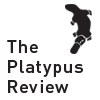Electoral politics are a longstanding problem for the U.S. left. In recent decades, a number of parties have formed as an alternative to the Democratic Party: the Labor Party, the Green Party, and now, the Justice Party. However, these parties risk becoming little more than networks of activists or pressure groups on the Democratic Party, and it still remains unclear whether a serious electoral challenge to the Democratic Party is possible. Radical Minds is pleased to air an edited recording of a panel organized by the Platypus Affiliated Society, which investigates several contemporary approaches to electoral politics and draws out the theories that motivate Leftist third parties. The major speakers, Lenny Brody of the Justice Party and Jason Wright of the International Bolshevik Tendency, consider how the historical achievements and failures of third parties bear upon the present.
Aired on April 10th, 2012 on the Radical Minds radio show.
Radical Minds interviews Cary Nelson, Professor of English at the University of Illinois at Urbana-Champaign and President of the American Association of University Professors (AAUP), on his recent book, 'No University is an Island: Saving Academic Freedom' (2010).
Aired on March 27th, 2012 on the Radical Minds radio show.
On March 17, 2012, Ross Wolfe and Pam Nogales of the Platypus Affiliated Society interviewed Domenico Losurdo, the author, most recently, of Liberalism: A Counter-History (2011).
Transcript in Platypus Review #46 (Click below):

A public interview with Herb Gamberg and Tony Thomson on the 1970s New Communist Movement in Halifax, held on March 1st, 2012.
The 1970s are usually passed over as the decade in which the social and political upheavals of the 1960s New Left were overwhelmed by a conservative tide. What is forgotten is that the 1970s were also a time of tremendous growth on the Left, most notably in the New Communist Movement. In Quebec thousands of members joined groups intent on forming a new national Communist party. In cities like Halifax and Vancouver activists formed smaller collectives in an effort to "get serious" about their Leftism. The period marked a reconsideration of Marxism and working class politics on a scale that has not been seen since.
What is the legacy of this movement today? Why did it emerge and what lead to its stunning decline in the early 1980s? As activist prepare for the next phase of Occupy is there anything to learn from this experience?
On February 28, 2012, the radio program Radical Minds on WHPK-FM Chicago broadcast an interview with Mary Gabriel, the author of Love and Capital: Karl and Jenny Marx and the Birth of a Revolution (New York: Little, Brown and Company, 2011). The interview was conducted by Spencer A. Leonard of the Platypus Affiliated Society.
Transcript in Platypus Review #47:


